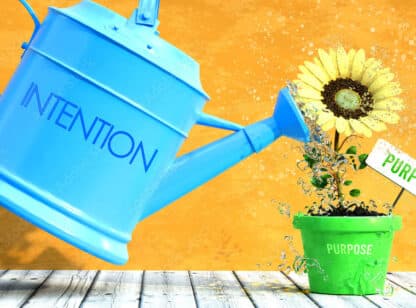It is a common belief that as we age, our minds and bodies decline and life inevitably becomes less satisfying and enjoyable. Cognitive decline is inevitable, and work is less productive.
According to a recent Wall Street Journal article, we are all wrong.
Certainly life gets better in many aspects as we get older. Our moods and sense of well-being improve with age. Friendships also tend to grow more intimate as older adults prioritize what matters most to them.
The WSJ article states that knowledge and certain types of intelligence continue to develop – and can even offset age-related decline – with the brain’s ability to process new information and reason abstractly. Expertise deepens, which can enhance productivity and creativity. “Some go so far as to say that wisdom – defined in part as the ability to resolve conflicts by seeing problems from multiple perspectives – flourishes.”
Naturally, growing older has its share of challenges, and some people don’t age as well as others. But “those who fall into the stereotype of being depressed, cranky, irritable and obsessed with their alimentary canal decline” constitute no more than 10% of the older population. “The other 90% of the population isn’t like that at all,” says Paul Costa, scientist emeritus of a long-running Baltimore National Study of Aging (BNSA).
It is believed that emotional well-being improves until the 70s, then levels off. But the BNSA research shows that even centenarians report high levels of well-being. As they age, their moods (measured by the ratio of positive to negative emotions) steadily improves. Costa adds that contrary to the popular view that youth is the best time of life, the peak of emotional life may not occur until well into the seventh decade.
Studies conclude that older adults focus on positive rather than negative emotions, memories, satisfaction, and stimuli. As people age, they tend to prioritize emotional meaning and satisfaction, giving them an incentive to see the good over the bad.
As we age our brains also undergo structural changes. The neurons that carry messages become less efficient. As a result, concentration and memories slip together with abstract reasoning and novel problem solving. However, recent discoveries also indicate that older adults perform better in the real world than they do on cognitive tests. The WSJ article warns that “typical laboratory tasks may systematically underestimate the true ability of older adults.”
Other studies conclude that older adults typically report better marriages, more supportive friendships, less conflict with children and siblings and closer ties with members of their social network than younger adults.
Conclusions stated were based on extensive research and I found them to be illuminating and positive. Still, I have to agree with Bette Davis…“Growing old is not for sissies.”
George can be reached at ugadolph@live.com.

















































Comments (0)